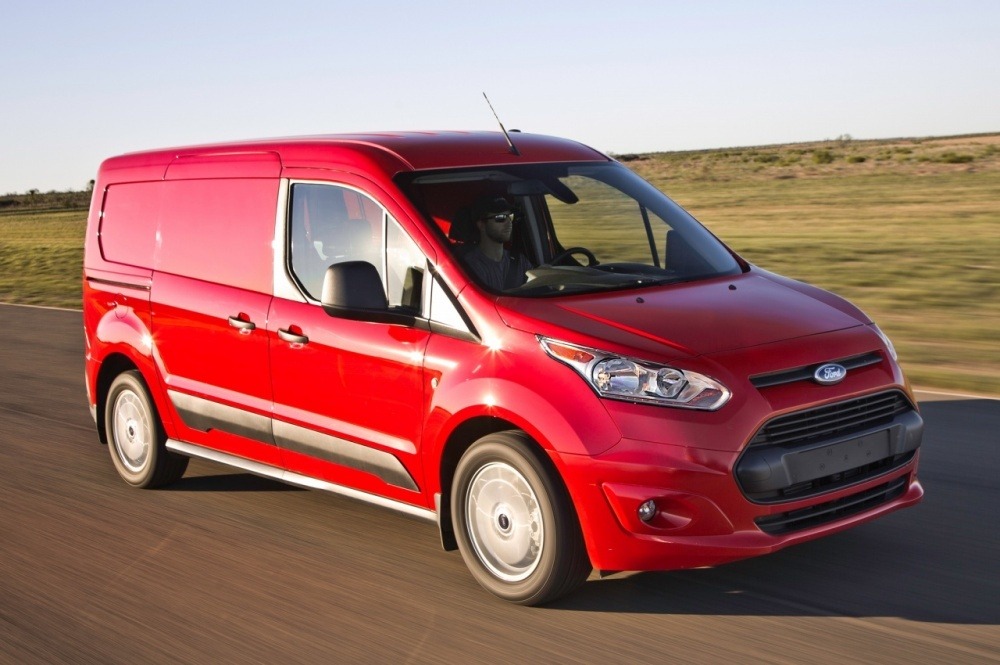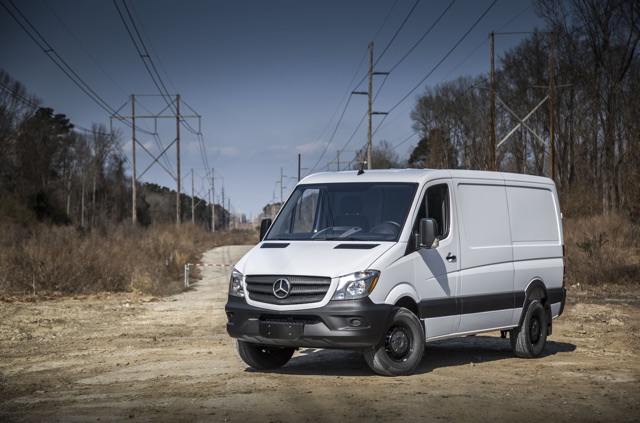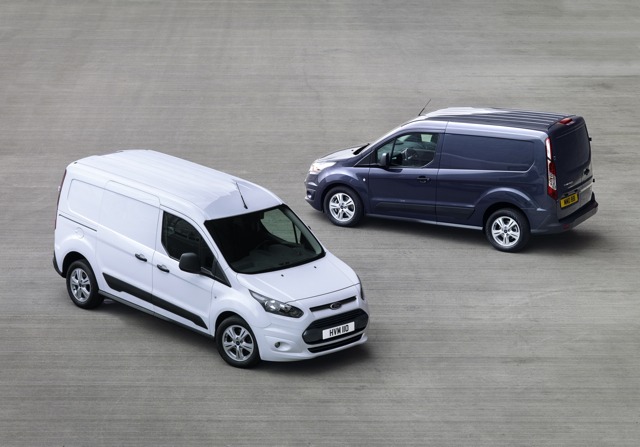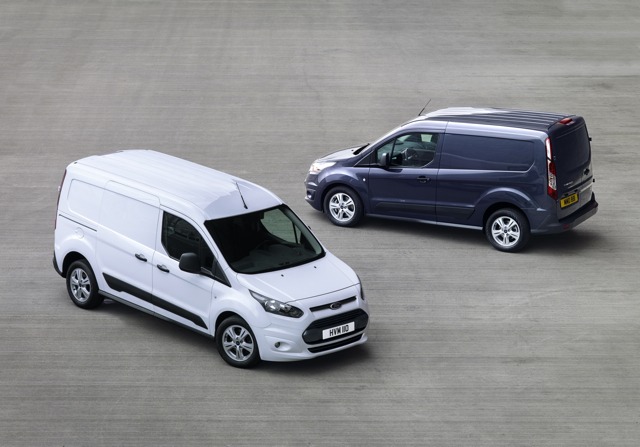Search the Community
Showing results for tags 'chicken tax'.
-
In the latest round of Trade War rhetoric is a question that has ended up in the courts, when is a passenger van really a cargo van and does this tariff engineering really justify getting around the 25% chicken tax? In response to President Donald Trump's tariff war, automakers are find interesting ways to play the grey area of the legal system. According to BNN Bloomberg and Bloomberg news, trade attorneys are closely watching the Ford Motor Co. legal case play out in federal court. This case deals with the importation of passenger vans that are then stripped down once they clear customs and sold as cargo vans. The difference here is that Ford pays 2.5% import duty on passenger vans versus te 25% import duty on light trucks / cargo vans. This challenge against Ford brought by U.S. Customs is challenging the practice of tariff engineering. The art of building a product one way, then changing it once cleared by customs for another use. With all the increased tariffs imposed by the Trump administration this could have critical impact on a region that many automakers have used to bring in a profitable product for market needs. According to the news stories, a ruling by the Court of International Trade ruled in Ford's favor in 2017 but is being challenged by the administration in the U.S. Court of Appeals. Regardless if the U.S. and China come to terms for a new trade agreement, there are no promises that the in place tariffs would be repealed. Ford's argument is that tariff engineering is a legitimate maneuvers for firms exploring ways to mitigate duties by project reclassification, shifting production to other countries which changes the origins of product assembly. Trade lawyers across the country say this case will help establish legal guidelines for tariff engineering. To quote the story from BNN Bloomberg: The U.S. Court of International Trade has stated that under the well-established customs law, manufacturers can intentionally make a product that can avoid higher tariffs with simple changes. What cannot be done is situations such as hiding a higher quality product in a lower quality product like high grade tobacco inside a case of lower grade tobacco. This case has come down to the wording on the import paperwork of "principally designed for the transport of persons". The current administration says this is a scheme for avoiding taxes and local jobs. Ford argues that the goods must be classified in their condition as imported, regardless of later alterations and ended use by consumers. Appeals court is expected to rule in the coming weeks.
-
- chicken tax
- ford
-
(and 2 more)
Tagged with:
-
In the latest round of Trade War rhetoric is a question that has ended up in the courts, when is a passenger van really a cargo van and does this tariff engineering really justify getting around the 25% chicken tax? In response to President Donald Trump's tariff war, automakers are find interesting ways to play the grey area of the legal system. According to BNN Bloomberg and Bloomberg news, trade attorneys are closely watching the Ford Motor Co. legal case play out in federal court. This case deals with the importation of passenger vans that are then stripped down once they clear customs and sold as cargo vans. The difference here is that Ford pays 2.5% import duty on passenger vans versus te 25% import duty on light trucks / cargo vans. This challenge against Ford brought by U.S. Customs is challenging the practice of tariff engineering. The art of building a product one way, then changing it once cleared by customs for another use. With all the increased tariffs imposed by the Trump administration this could have critical impact on a region that many automakers have used to bring in a profitable product for market needs. According to the news stories, a ruling by the Court of International Trade ruled in Ford's favor in 2017 but is being challenged by the administration in the U.S. Court of Appeals. Regardless if the U.S. and China come to terms for a new trade agreement, there are no promises that the in place tariffs would be repealed. Ford's argument is that tariff engineering is a legitimate maneuvers for firms exploring ways to mitigate duties by project reclassification, shifting production to other countries which changes the origins of product assembly. Trade lawyers across the country say this case will help establish legal guidelines for tariff engineering. To quote the story from BNN Bloomberg: The U.S. Court of International Trade has stated that under the well-established customs law, manufacturers can intentionally make a product that can avoid higher tariffs with simple changes. What cannot be done is situations such as hiding a higher quality product in a lower quality product like high grade tobacco inside a case of lower grade tobacco. This case has come down to the wording on the import paperwork of "principally designed for the transport of persons". The current administration says this is a scheme for avoiding taxes and local jobs. Ford argues that the goods must be classified in their condition as imported, regardless of later alterations and ended use by consumers. Appeals court is expected to rule in the coming weeks. View full article
-
- chicken tax
- ford
-
(and 2 more)
Tagged with:
-
Automakers go to great lengths to avoid being hit with the 25 percent chicken tax when they import trucks or vans into the U.S. Mercedes-Benz takes the cake for the most absurd method. For the past decade, Mercedes-Benz would build Sprinter vans fully in Germany before disassembling them and shipping the pieces to South Carolina. Workers in a small assembly building would put the vans back together. This method allowed Mercedes-Benz to claim the vans as "locally made". "I really couldn't believe it. To build up and tear down, that's really something that hurts me, personally. And the costs!" said Volker Mornhinweg, worldwide head of Mercedes-Benz Vans. Mornhinweg first learned about this back in 2010 and like us, found himself wondering 'WHY?!' Thankfully, Mornhinweg began working on making this process not seem like Rube Goldberg machine which will fully culminate with a new assembly plant in South Carolina that will be tasked with building the next-generation Sprinter, most likely in 2018. Source: Automotive News (Subscription Required) View full article
- 13 replies
-
- avoid
- chicken tax
-
(and 4 more)
Tagged with:
-

Mercedes-Benz's Absurd Way Of Avoiding the Chicken Tax
William Maley posted an article in Mercedes Benz
Automakers go to great lengths to avoid being hit with the 25 percent chicken tax when they import trucks or vans into the U.S. Mercedes-Benz takes the cake for the most absurd method. For the past decade, Mercedes-Benz would build Sprinter vans fully in Germany before disassembling them and shipping the pieces to South Carolina. Workers in a small assembly building would put the vans back together. This method allowed Mercedes-Benz to claim the vans as "locally made". "I really couldn't believe it. To build up and tear down, that's really something that hurts me, personally. And the costs!" said Volker Mornhinweg, worldwide head of Mercedes-Benz Vans. Mornhinweg first learned about this back in 2010 and like us, found himself wondering 'WHY?!' Thankfully, Mornhinweg began working on making this process not seem like Rube Goldberg machine which will fully culminate with a new assembly plant in South Carolina that will be tasked with building the next-generation Sprinter, most likely in 2018. Source: Automotive News (Subscription Required)- 13 comments
-
- avoid
- chicken tax
-
(and 4 more)
Tagged with:
-

Ford Gets Yelled At By U.S. Government For Chicken Tax Work Around
William Maley posted an article in Ford
William Maley Staff Writer - CheersandGears.com September 30, 2013 Ford has gotten a slap on the wrist for their Chicken Tax work-around on the Transit Connect. Back in January, the U.S. Customs and Border Protection asked the company to stop the practice of bringing in Transit Connects as passenger vans, and then removing the windows and shredding the back seats to make into a cargo van. This practice allowed Ford to pay a lower 2.5% tariff for a passenger vehicle and not a 25% tariff for cargo vehicles. "It is clear that the Connect is a commercial vehicle first and foremost," said the ruling. Ford's strategy "serves no manufacturing or commercial purpose" other than to "manipulate the tariff schedule." Automotive News has learned from a Ford spokesman that the company is currently appealing the decision and is importing the Transit Connect with the higher 25% tariff. Ford is also lobbying the U.S. Government for a trans-Atlantic treaty which would eliminate the Chicken Tax. Source: Automotive News (Subscription Required) William Maley is a staff writer for Cheers & Gears. He can be reached at [email protected] or you can follow him on twitter at @realmudmonster.-
- Chicken Tax
- Ford
-
(and 2 more)
Tagged with:
-
William Maley Staff Writer - CheersandGears.com September 30, 2013 Ford has gotten a slap on the wrist for their Chicken Tax work-around on the Transit Connect. Back in January, the U.S. Customs and Border Protection asked the company to stop the practice of bringing in Transit Connects as passenger vans, and then removing the windows and shredding the back seats to make into a cargo van. This practice allowed Ford to pay a lower 2.5% tariff for a passenger vehicle and not a 25% tariff for cargo vehicles. "It is clear that the Connect is a commercial vehicle first and foremost," said the ruling. Ford's strategy "serves no manufacturing or commercial purpose" other than to "manipulate the tariff schedule." Automotive News has learned from a Ford spokesman that the company is currently appealing the decision and is importing the Transit Connect with the higher 25% tariff. Ford is also lobbying the U.S. Government for a trans-Atlantic treaty which would eliminate the Chicken Tax. Source: Automotive News (Subscription Required) William Maley is a staff writer for Cheers & Gears. He can be reached at [email protected] or you can follow him on twitter at @realmudmonster. View full article
-
- Chicken Tax
- Ford
-
(and 2 more)
Tagged with:
-
William Maley Staff Writer - CheersandGears.com August 8, 2013 The Chicken Tax, a fifty year-old tariff put in place to tax 25 percent on all imported trucks could be gone in the near future. The U.S. is currently in talks currently in negotiations with the the Trans-Pacific Partnership over free-trade agreements. One of the countries in the Trans-Pacific Partnership is Japan, a country that currently imposes strict restrictions on U.S. imports. The U.S. is using the elimination of the Chicken Tax as bargaining chip in the negotiations to hopefully open up and let domestic automakers come in. “The automakers see it as some leverage to getting other countries to open up their markets. The tariff doesn’t seem to make any sense now, particularly since the industry has globalized, or at least regionalized, but this is what happens with transfer programs, with protectionism, with social safety nets," said Daniel Ikenson, director of the Cato Institute’s Herbert A. Stiefel Center for Trade Policy Studies. Cases in point: Honda, Nissan, and Toyota build their trucks in U.S. Ford and for a time Chrysler used a loophole in the Chicken Tax to bring their vans into U.S. The Chicken Tax has also hurt automakers. For example, MINI pulled the Clubvan in the U.S. partly due to the Chicken Tax. If the U.S. is not successful in their negotiations, the Chicken Tax could stay on the books for another 25 to 30 years. Source: The Detroit News William Maley is a staff writer for Cheers & Gears. He can be reached at [email protected] or you can follow him on twitter at @realmudmonster.
- 8 comments
-
- Chicken Tax
- Pickup Trucks
-
(and 2 more)
Tagged with:
-
William Maley Staff Writer - CheersandGears.com August 8, 2013 The Chicken Tax, a fifty year-old tariff put in place to tax 25 percent on all imported trucks could be gone in the near future. The U.S. is currently in talks currently in negotiations with the the Trans-Pacific Partnership over free-trade agreements. One of the countries in the Trans-Pacific Partnership is Japan, a country that currently imposes strict restrictions on U.S. imports. The U.S. is using the elimination of the Chicken Tax as bargaining chip in the negotiations to hopefully open up and let domestic automakers come in. “The automakers see it as some leverage to getting other countries to open up their markets. The tariff doesn’t seem to make any sense now, particularly since the industry has globalized, or at least regionalized, but this is what happens with transfer programs, with protectionism, with social safety nets," said Daniel Ikenson, director of the Cato Institute’s Herbert A. Stiefel Center for Trade Policy Studies. Cases in point: Honda, Nissan, and Toyota build their trucks in U.S. Ford and for a time Chrysler used a loophole in the Chicken Tax to bring their vans into U.S. The Chicken Tax has also hurt automakers. For example, MINI pulled the Clubvan in the U.S. partly due to the Chicken Tax. If the U.S. is not successful in their negotiations, the Chicken Tax could stay on the books for another 25 to 30 years. Source: The Detroit News William Maley is a staff writer for Cheers & Gears. He can be reached at [email protected] or you can follow him on twitter at @realmudmonster. View full article
- 8 replies
-
- Chicken Tax
- Pickup Trucks
-
(and 2 more)
Tagged with:





